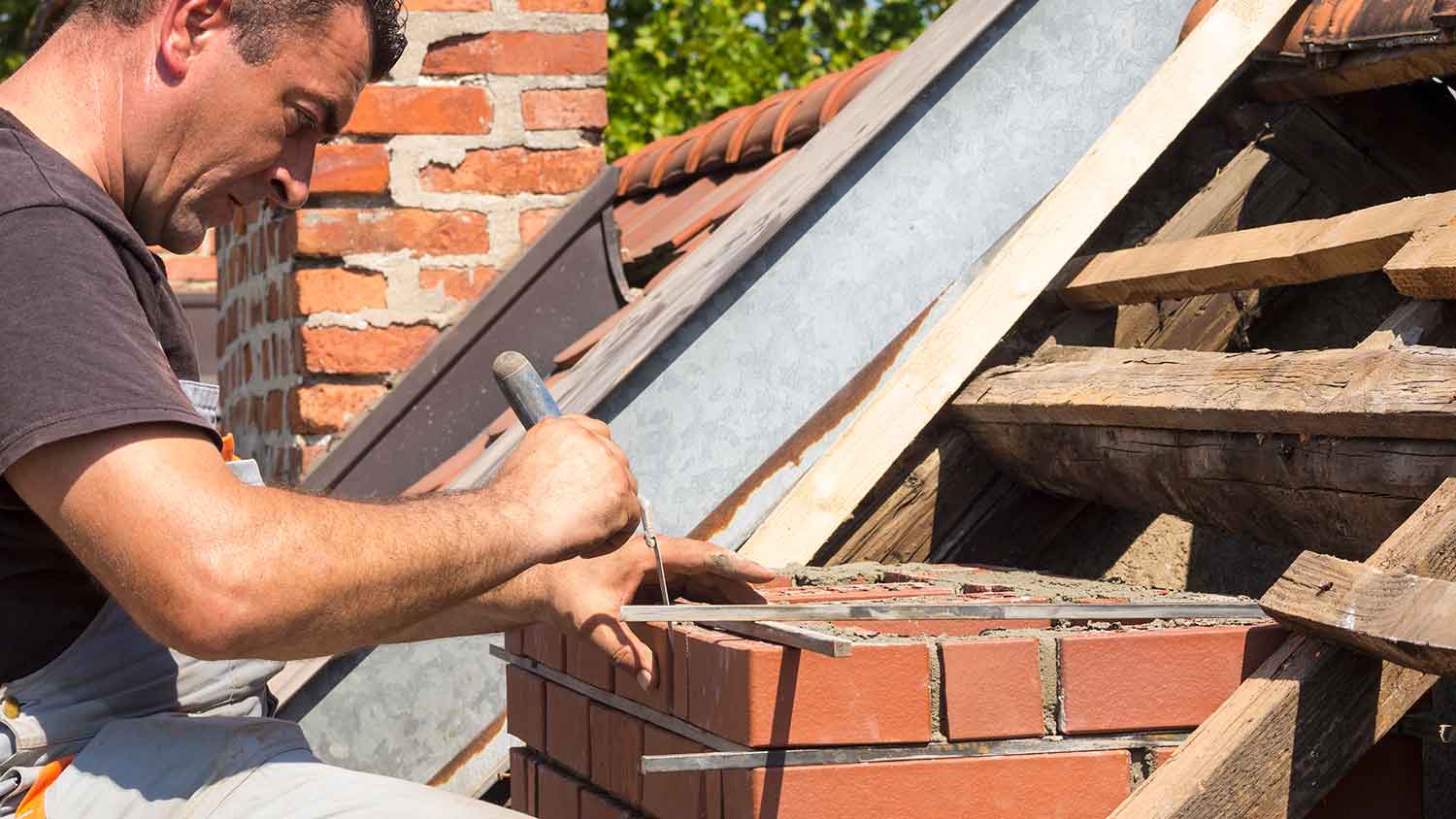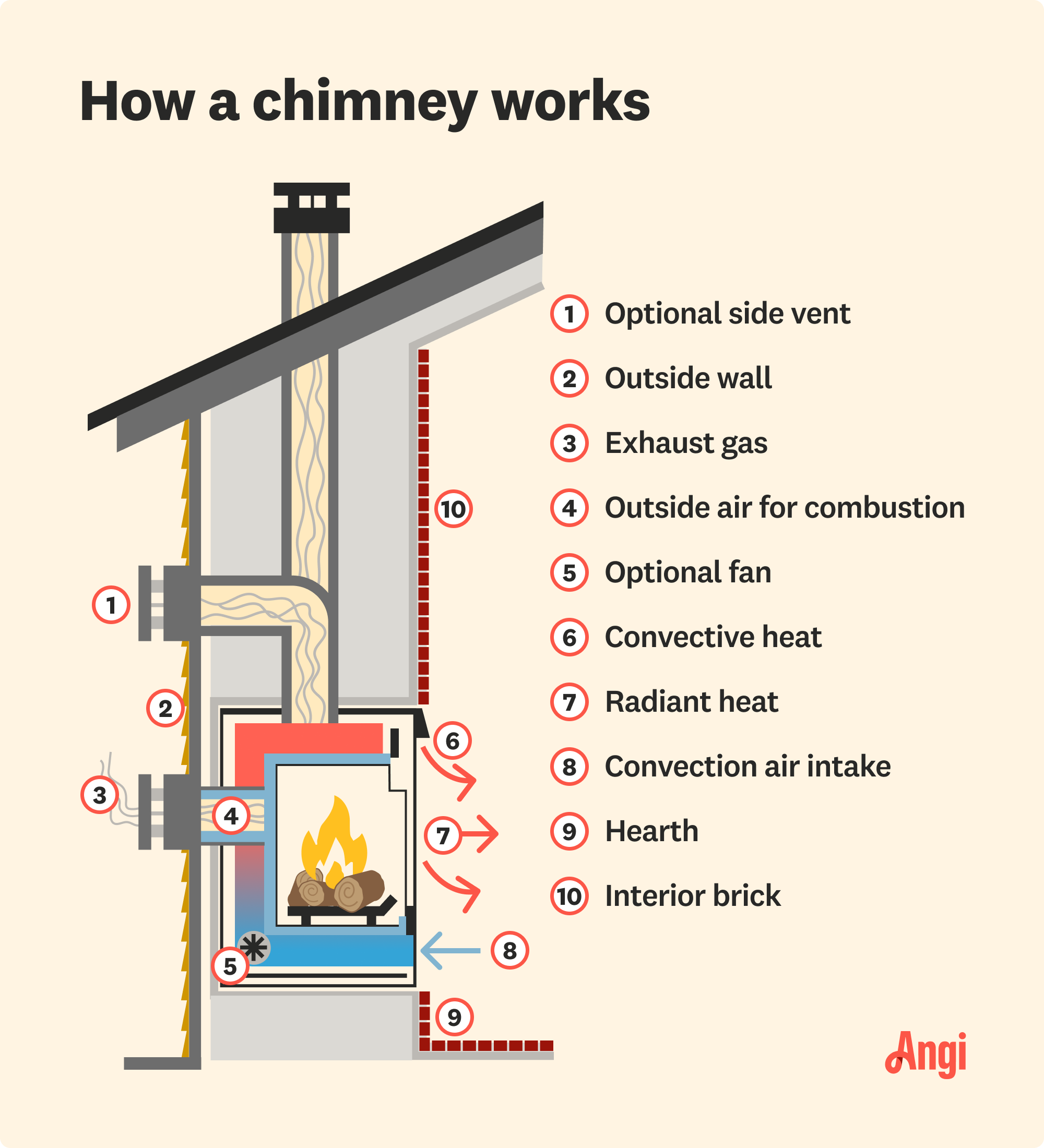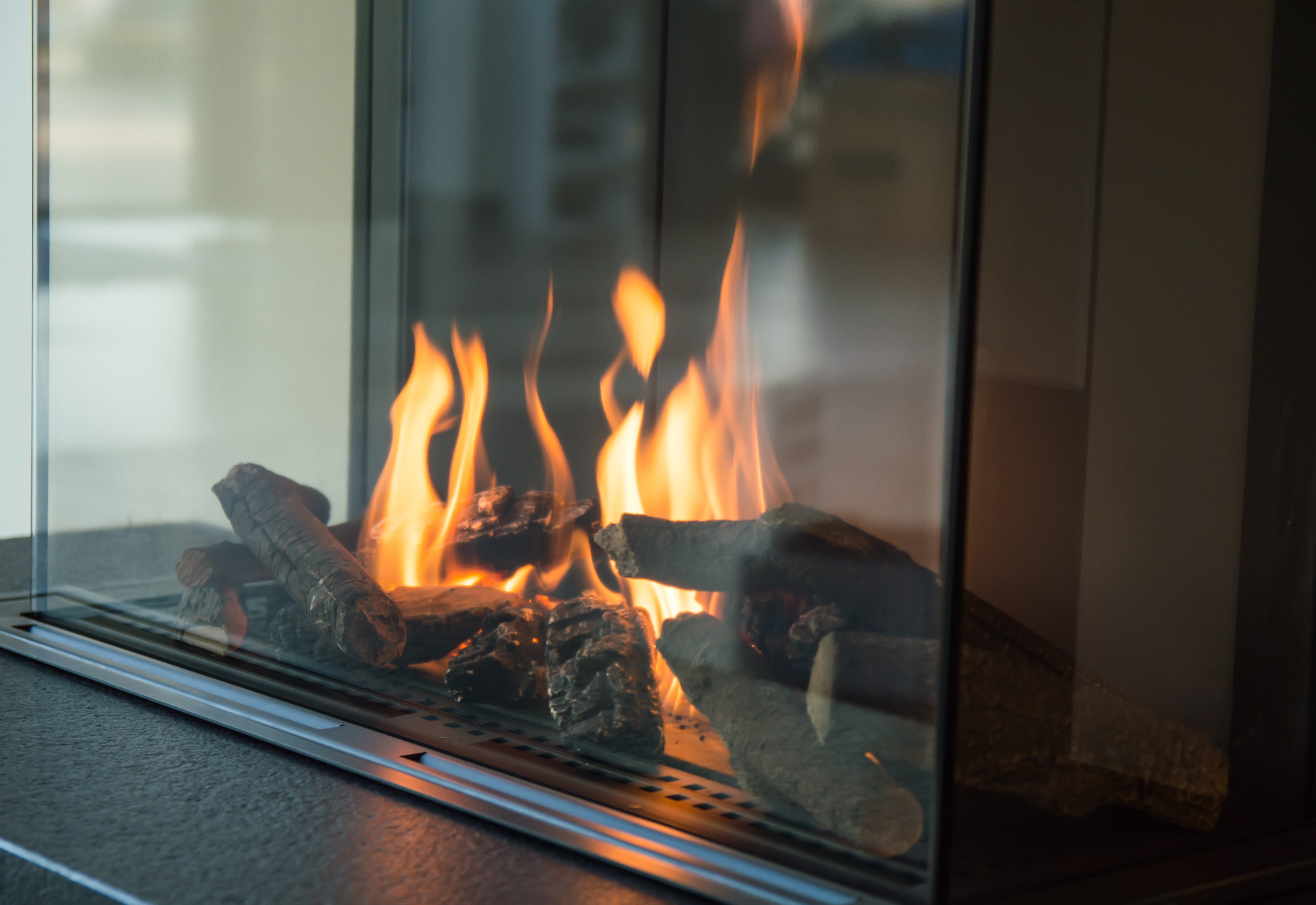
This guide shares information about the cost to remove a gas fireplace, including the average price to additionally remove the breast, stack, and chimney flue as well as which experts will be needed to complete the project.
Let’s log the solutions to these stinky problems


Soot and creosote buildup are common causes of a smelly fireplace.
Musty smells could be from moisture damage or leaf debris.
Rotting smells can be a sign of an animal infestation.
Poor airflow or negative air pressure can cause smoky smells to come from the fireplace.
Annual chimney inspections and cleanings will minimize fireplace smells.
You’re sitting on the couch, curled up with a good book, when all of a sudden, you’re rudely greeted by a strong smell coming from the fireplace. Your fireplace stinks, but why? A fireplace can stink when you ignite the first fire of the season, but you could also notice musty or even rotten smells well into summer when it’s not in use. No matter the season, here are six common reasons why your fireplace stinks—plus how to fix the stench.

Using any type of fireplace naturally leads to soot and creosote, byproducts of burning materials like wood, coal, or gas. Over time, these byproducts can build up inside the chimney, causing a smoky smell or an odor similar to hot asphalt.
Hire a chimney sweep before the start of heating season. A pro will safely clean out the excess soot and creosote from the chimney, so your next fire won’t smell so smoky. This process also reduces the risk of a chimney fire (the kind you DON’T want) and improves your indoor air quality.
After a full season of falling leaves, you now notice a rotting or musty smell coming from the fireplace. That could mean leaves have fallen into your chimney and are now decaying, causing an unpleasant odor.
Hire a chimney cleaning pro to remove the leaf debris and clean the chimney. Consider having a pro inspect the chimney afterward to check for any signs of damage from the rotting leaf litter. After you get the “all clear,” hire a pro to install a chimney cap to keep more leaves from falling into your chimney in the future.
Chimneys are warm and enclosed, creating an inviting place for animals like birds, squirrels, bats, or raccoons to nest. If there’s an animal in your chimney, you may smell their feces and urine or a musty scent. If there’s a dying or dead animal present, the smell will be rancid. You could also hear noises like scratching or scuttling coming from inside the chimney.
Never attempt to remove a wild animal from your chimney yourself because the animal could bite, potentially spreading rabies or another disease. Hire a local pest control specialist or chimney sweep to remove the animal and thoroughly clean the chimney to remove odors.

If you had animals or damp leaf debris in your chimney, or if there’s a leak allowing rain inside the chimney, there could be moisture damage causing a foul odor. If your home is highly humid, the moisture can damage the inside of the chimney.
A chimney repair specialist will need to come and inspect the extent of the moisture damage. Because moisture can threaten the integrity of the chimney masonry, encourage mold or mildew growth, and damage several parts of the fireplace, a pro needs to assess and repair the damage.

Your fireplace requires the right air pressure to work properly. Normally, the combustion gases are directed up through the chimney to release outside. However, if there’s negative air pressure, a backdraft occurs, causing the fumes to come back down the chimney and into the home. This can lead to a smoky smell.
Many different things can cause negative air pressure, including an open door or window, worn out or leaking ducts, or a running exhaust fan. Although you can try closing or opening doors or windows or stopping an exhaust fan, the fastest way to solve negative air pressure is to have a chimney repair pro inspect the house. This issue sometimes requires more extensive repairs to ducts or ventilation systems.
Poor airflow could mean your home is either too drafty and allowing the exhausted chimney fumes back inside through poorly sealed doors and windows or is so tightly sealed that these gases cannot properly escape. If you’ve built your own fireplace, improper ventilation can also cause smoky smells in your house.
Whether the issue is a drafty home or a home that’s too tightly sealed, improper airflow or ventilation should be addressed by a fireplace pro immediately. If your fireplace stinks, it could be a sign that combustion gases, including carbon monoxide, are leaking inside the house. Turn off the fireplace and call a pro to take a look as soon as possible.
If your fireplace stinks, it’s best to call a pro to handle the problem. Whether you call a pest control specialist to remove an animal nest in the chimney or a fireplace cleaner near you to clear out soot buildup, the safest way to fix a stinky fireplace is to leave the job to the expert.
Making a mistake, such as misdiagnosing the problem or not properly establishing ventilation, could lead to serious issues, including an increased fire risk or a higher risk of a carbon monoxide leak.
Leave all chimney work to a pro. Chimney jobs involve working on a roof, potential exposure to creosote, and ensuring a safe repair or installation of chimney parts. Each of these can be seriously harmful or even deadly for anyone without expertise.
Regular fireplace maintenance is the best way to prevent your fireplace from stinking up the house. Here’s what you can do to keep fireplace smells away:
Burn seasoned wood: Seasoned wood, or firewood that has been dried out for six to 12 months, doesn’t leave behind as much soot or creosote as unseasoned wood.
Install a chimney cap: Issues like leaf debris and animals are a thing of the past when you have a chimney cap. This chimney part encloses the top of the chimney while still offering plenty of ventilation for gases to escape.
Clean the fireplace regularly: You can clean ash and soot from the fireplace yourself every month to minimize smoky odors, then have a pro clean the chimney annually.
Schedule annual inspections: Hire a pro to inspect the chimney for soot buildup, cracks, or other damage at least once per year right before winter.
From average costs to expert advice, get all the answers you need to get your job done.

This guide shares information about the cost to remove a gas fireplace, including the average price to additionally remove the breast, stack, and chimney flue as well as which experts will be needed to complete the project.

A fireplace remodel cost depends on the extent of the remodel and the materials you choose. Use this guide to calculate your costs and budget accordingly.

The average fireplace installation cost is $2,438, but prices vary depending on the type and size of the fireplace. Calculate your costs with our guide.

Keeping your gas fireplace lit shouldn’t be a struggle—but sometimes, it is. If so, you might wonder: Why does my gas fireplace keep going out? Let us explain.

Maintaining your chimney extends its life and prevents safety hazards. So, no matter how small, find out why cracks appear and the best ways to fix them ASAP.

Wondering if ventless fireplaces are safe? As long as you follow the proper installation techniques and have safeguards in place, you can use them without worry.